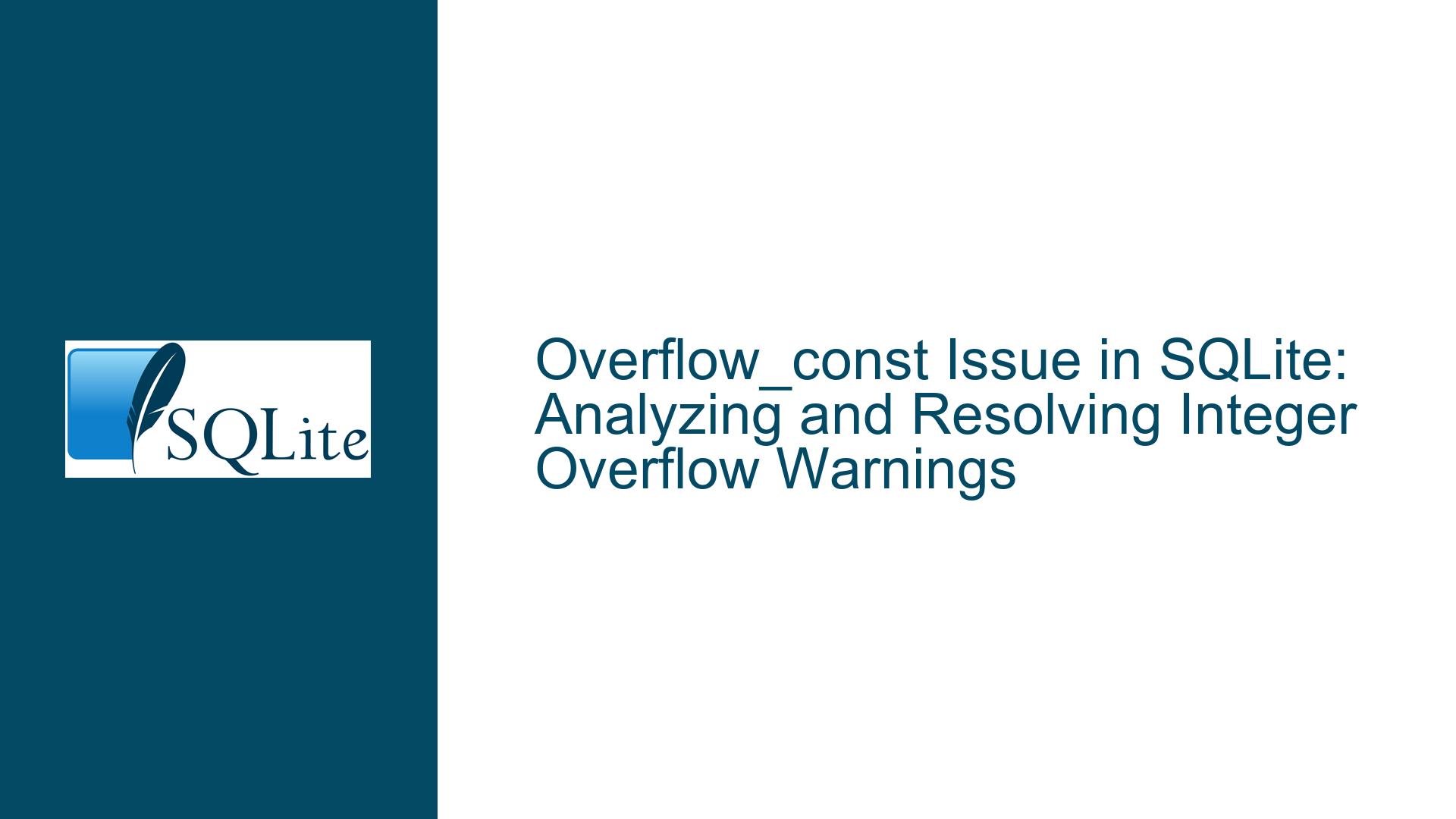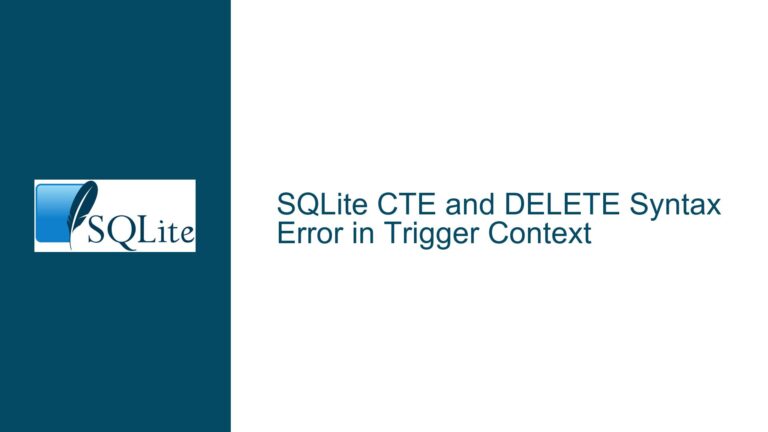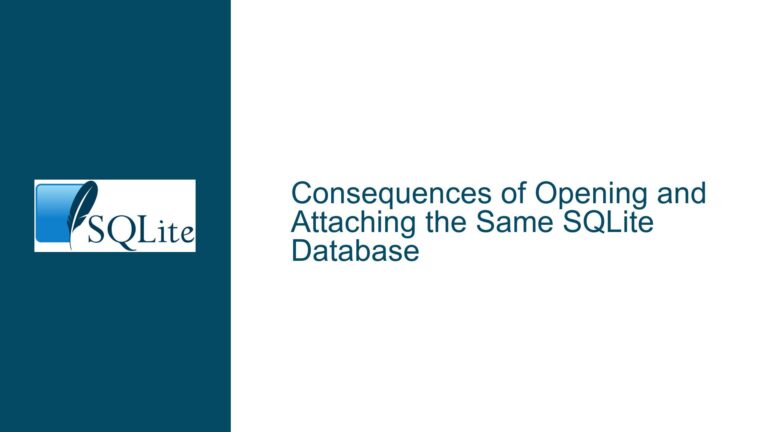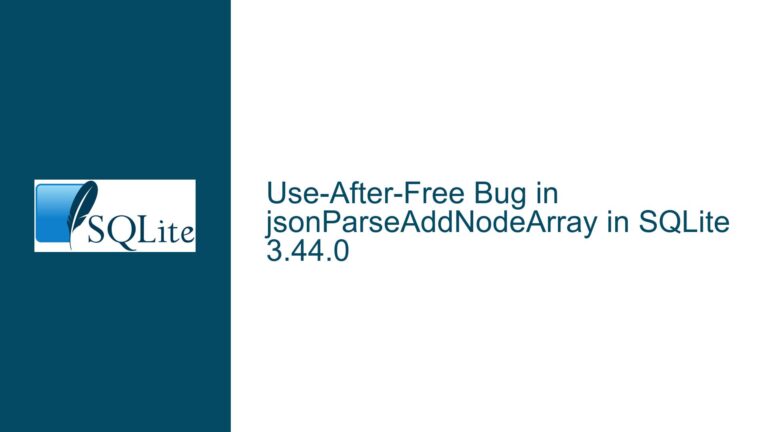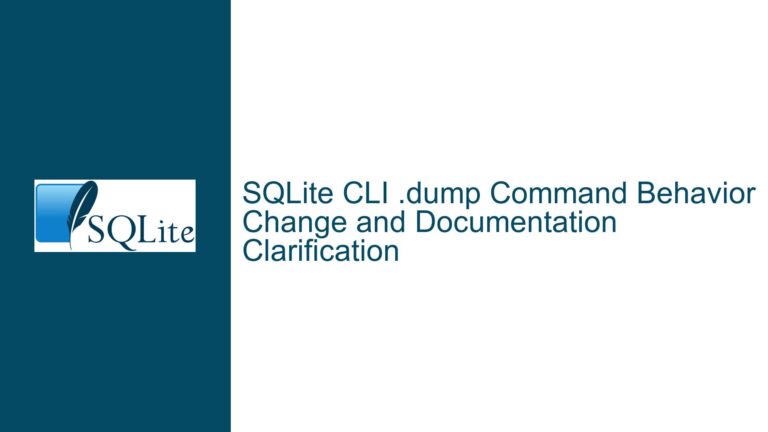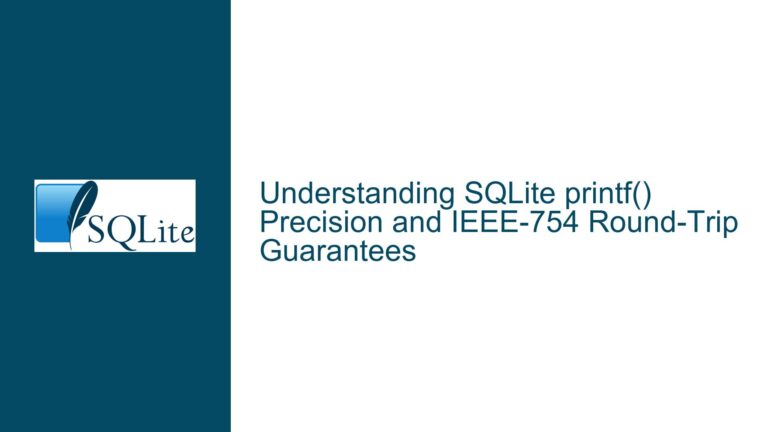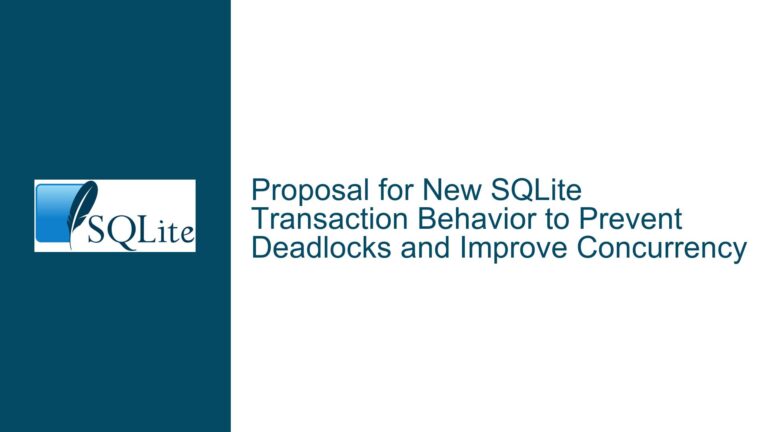Overflow_const Issue in SQLite: Analyzing and Resolving Integer Overflow Warnings
Understanding the Overflow_const Warning in SQLite’s renameParseSql Function
The overflow_const warning reported by Coverity in the SQLite function renameParseSql highlights a potential integer overflow scenario. This warning arises when the static analysis tool detects that a value being assigned to an 8-bit unsigned integer could exceed its maximum capacity, leading to undefined behavior or incorrect results. The specific line in question is:
db->init.iDb = bTemp ? 1 : sqlite3FindDbName(db, zDb);
Here, db->init.iDb is an 8-bit unsigned integer, and the expression bTemp ? 1 : sqlite3FindDbName(db, zDb) is evaluated to determine its value. Coverity claims that sqlite3FindDbName(db, zDb) can return -1, which, when assigned to an 8-bit unsigned integer, would overflow and result in 255. This warning is critical because it suggests a potential vulnerability or logical error in the code.
To fully understand this issue, we need to dissect the components involved:
db->init.iDb: This is an 8-bit unsigned integer field in thesqlite3database handle structure. Its purpose is to store the index of the database schema being processed. Since it is unsigned, its valid range is 0 to 255.sqlite3FindDbName(db, zDb): This function is responsible for locating the schema name (zDb) within the database handle (db). It returns the index of the schema if found. If the schema does not exist, it returns -1.Ternary Operator (
bTemp ? 1 : sqlite3FindDbName(db, zDb)):- If
bTempis true (indicating a temporary schema), the value 1 is assigned todb->init.iDb. - If
bTempis false, the result ofsqlite3FindDbName(db, zDb)is assigned todb->init.iDb.
- If
The core of the issue lies in the possibility of sqlite3FindDbName(db, zDb) returning -1, which, when assigned to an 8-bit unsigned integer, would overflow and result in 255. This overflow could lead to incorrect behavior if the code relies on db->init.iDb being a valid schema index.
Exploring the Validity of the Overflow_const Warning
The overflow_const warning raises two critical questions:
Is
sqlite3FindDbName(db, zDb)ever expected to return -1 in this context?- According to the discussion,
renameParseSqlis only called with existing schema names. This meanssqlite3FindDbName(db, zDb)should never return -1 in practice. If this assumption holds, the overflow scenario described by Coverity cannot occur.
- According to the discussion,
Is the warning a false positive?
- Coverity is known for generating false positives, especially in complex codebases like SQLite. The maintainers of SQLite have repeatedly stated that Coverity’s warnings are often incorrect or irrelevant. This suggests that the warning might not indicate a genuine issue.
However, even if the warning is a false positive, it is essential to address it for several reasons:
- Code Clarity: Adding assertions or comments can help future developers understand the constraints and assumptions in the code.
- Tool Compatibility: Ensuring that static analysis tools do not generate spurious warnings can improve the overall development workflow.
- Defensive Programming: Proactively handling edge cases, even if they are unlikely, can prevent subtle bugs from creeping into the codebase.
Resolving the Overflow_const Warning: Steps and Solutions
To resolve the overflow_const warning, we can take the following steps:
Add Assertions to Validate Assumptions:
- Since
renameParseSqlis only called with existing schema names, we can add an assertion to ensure thatsqlite3FindDbName(db, zDb)never returns -1. This would make the code’s assumptions explicit and help static analysis tools like Coverity understand the constraints.
int iDb = sqlite3FindDbName(db, zDb); assert(iDb != -1); // Ensure the schema exists db->init.iDb = bTemp ? 1 : iDb;- Since
Refactor the Code to Handle Edge Cases:
- Although the current implementation assumes that
sqlite3FindDbName(db, zDb)never returns -1, we can refactor the code to handle this edge case explicitly. This would make the code more robust and eliminate the overflow warning.
int iDb = sqlite3FindDbName(db, zDb); if (iDb == -1) { // Handle the case where the schema does not exist return SQLITE_ERROR; } db->init.iDb = bTemp ? 1 : iDb;- Although the current implementation assumes that
Suppress the Warning in Coverity:
- If the warning is confirmed to be a false positive, we can suppress it in Coverity’s configuration. This approach should be used sparingly and only after thorough validation.
Update to the Latest SQLite Version:
- The discussion mentions that the issue was reported in SQLite version 3.41.2. Upgrading to the latest version (3.45.1 or later) might resolve the warning, as newer releases often include fixes and improvements that address such issues.
Review the Usage of
db->init.iDb:- Ensure that all code paths that use
db->init.iDbcorrectly handle its value. This includes verifying that no part of the code assumesdb->init.iDbis always within a specific range.
- Ensure that all code paths that use
By following these steps, we can address the overflow_const warning effectively, ensuring that the code is both correct and maintainable. Whether the warning is a false positive or not, taking a proactive approach to resolving it will improve the overall quality and reliability of the SQLite codebase.
